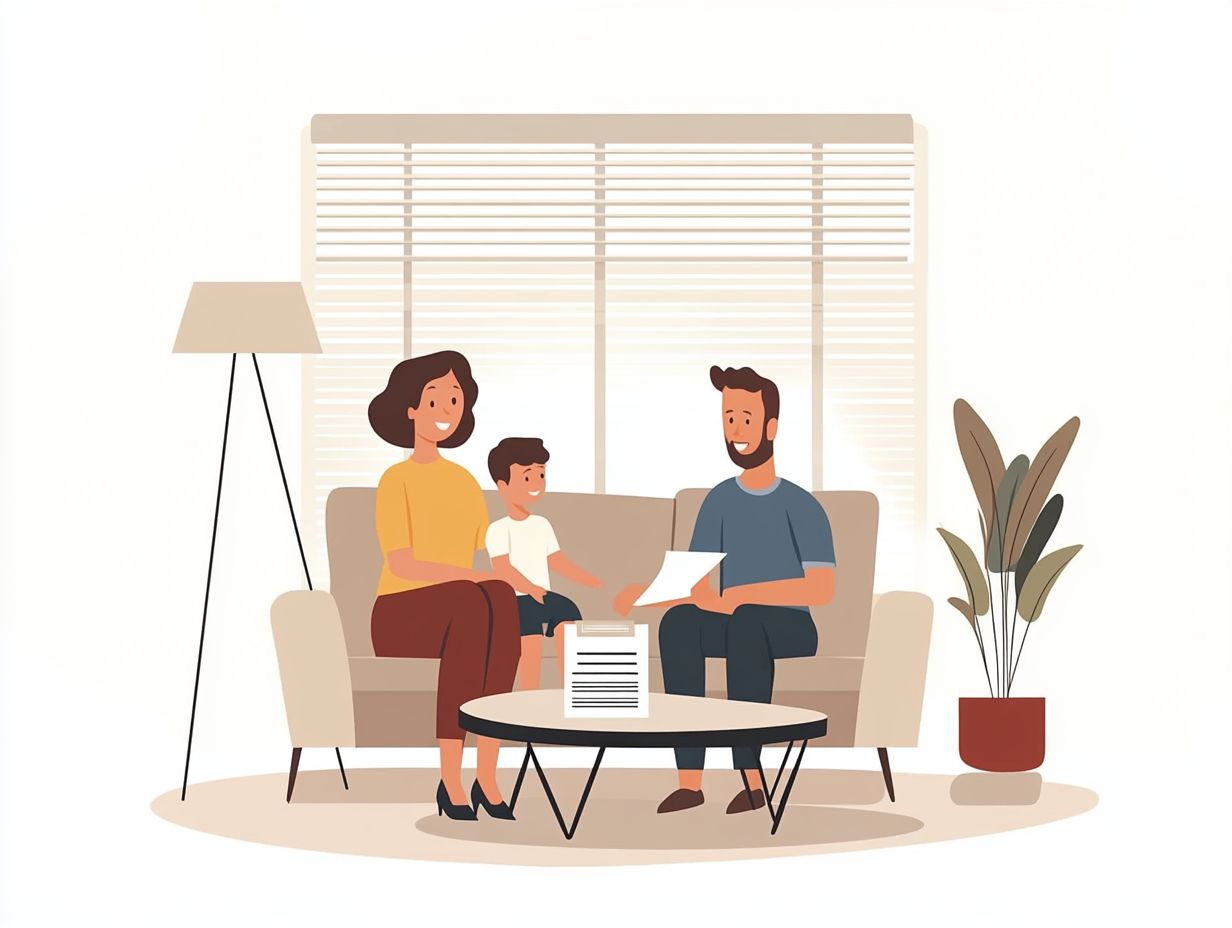7 Unexpected Benefits of Home Insurance
Home insurance isn t merely about protecting your house; it s a crucial element in securing your financial future and achieving peace of mind.
While it may seem like just another necessary expense, the advantages of home insurance extend far beyond simple protection against property damage. It covers personal belongings and provides liability protection, creating a robust safety net during unforeseen events.
This article delves into seven unexpected benefits of home insurance, underscoring its significance in today s unpredictable landscape. Whether you re a seasoned homeowner or just embarking on this journey, grasping these advantages will empower you to make informed decisions about your coverage.
Contents
- Key Takeaways:
- 1. Protects Your Home from Natural Disasters
- 2. Covers Damage to Personal Belongings
- 3. Provides Liability Coverage
- 4. Offers Temporary Living Expenses
- 5. Can Help with Legal Expenses
- 6. Gives You Peace of Mind
- 7. May Lower Your Mortgage Payments
- What Does Home Insurance Typically Cover?
- Frequently Asked Questions
- What are the 7 unexpected benefits of home insurance?
- How does home insurance protect my belongings inside my home?
- Can home insurance save me money on unexpected repairs?
- What if someone gets injured in my home, can home insurance help?
- Does home insurance cover additional living expenses if my home becomes uninhabitable?
- Are there any tax benefits to having home insurance?
- Can home insurance provide liability coverage for incidents outside of my home?
Key Takeaways:

- Home insurance protects your home from natural disasters, giving you peace of mind and financial security in case of unexpected events.
- It covers damage to personal belongings, provides liability coverage, and temporary living expenses.
- Home insurance can also assist with legal expenses and may even lower your mortgage payments.
1. Protects Your Home from Natural Disasters
Homeowners insurance protects your property from natural disasters, offering financial security from events like hurricanes, earthquakes, and even rare meteorite strikes. Understanding the benefits of specialized home insurance policies ensures that your home and its contents can be restored or replaced without the burden of huge financial losses.
Your policy typically addresses fires, which can strike unexpectedly, and floods a growing concern that many standard policies may not adequately cover. Coverage limits can vary widely depending on the insurer and the specific details of your policy.
Some policies may provide comprehensive protection against wind damage, while others might require additional coverage for full flood protection. You can also consider additional coverage to protect against unusual but impactful events, such as landslides or volcanic eruptions. This extra coverage gives you peace of mind when you need it most!
2. Covers Damage to Personal Belongings
Homeowners insurance offers robust coverage for your personal property, ensuring your valuable items be it electronics, furniture, or even that stash of food vulnerable to spoilage during a power outage are safeguarded against risks like theft and fire damage.
If a theft or fire occurs, you can initiate a claim by presenting detailed accounts and supporting documents to substantiate your losses. Be aware of specific exclusions and limitations, as not all items are covered under standard policies.
High-value collectibles or specialized equipment might require additional coverage to ensure they re adequately protected. By securing this additional coverage, you can customize your policy to include unique situations, granting you peace of mind during uncertain times.
3. Provides Liability Coverage
Liability coverage is an essential element of homeowners insurance, safeguarding you against claims that may arise from injuries or damages on your property. This includes incidents related to dog bites or injuries caused by animals, as well as covering any associated legal expenses.
This coverage acts as your safety net, especially in scenarios like slip-and-fall accidents or property damage caused by children enjoying their time in the backyard. For instance, if a guest trips over an uneven walkway and gets injured, your liability coverage will help cover their medical expenses and any legal fees that arise.
Keep an eye on your coverage limits; basic policies might not fully protect you against steep costs in severe incidents. That s where additional coverage comes into play, offering you extra protection for valuable assets or unique situations, ensuring you enjoy peace of mind and financial security.
Don t wait until it’s too late! Explore your home insurance options today.
4. Offers Temporary Living Expenses
Homeowners insurance can be a lifesaver when covering additional living expenses. It offers financial relief for hotel stays and other costs incurred when your home becomes temporarily uninhabitable due to a covered risk, like fire damage or severe weather.
This coverage typically activates when your property is rendered unlivable, allowing you to maintain your usual standard of living during that challenging time. Calculating these additional living expenses usually includes factors like temporary lodging, meals, and even transportation, which can vary significantly based on your specific situation.
For instance, if a storm severely damages your roof, necessitating evacuation and alternative accommodation, those costs would generally qualify for coverage.
However, be mindful of potential limitations. Some policies may impose caps on the total claims you can make or exclude certain expenses, such as meal costs exceeding a standard budget. Understanding these nuances is essential to fully leverage this important aspect of your insurance.
5. Can Help with Legal Expenses

If there is a liability claim, homeowners insurance can be a valuable ally, providing significant assistance with legal expenses. This support ensures you won t be financially overwhelmed by the costs of defending against lawsuits that might arise from injuries occurring on your property.
This safety net is essential, considering the myriad of incidents like slips and falls, dog bites, or accidents involving visitors that could lead to substantial legal action against you.
When it comes time to file a claim, promptly notify your insurance provider as soon as you become aware of any potential lawsuit or incident. After that, you ll need to gather and submit necessary documentation, such as incident reports or medical records, to establish the validity of your claim.
Liability coverage serves as the cornerstone of this protection. Not only does it help cover legal fees, but it may also pay for settlements or judgments, effectively shielding you from potential financial devastation.
6. Gives You Peace of Mind
Investing in homeowners insurance grants you invaluable peace of mind, ensuring your home is safeguarded against a myriad of threats, from natural disasters to property damage. You ll feel secure knowing your living space is protected, allowing you to immerse yourself in the joy of your home without the nagging worry of what-ifs.
This essential protection does more than just shield you from financial loss; it also plays a crucial role in enhancing your emotional well-being. Understanding the importance of home insurance can lead homeowners to express a heightened sense of security, which can alleviate anxiety and nurture a positive atmosphere within their homes.
For example, a recent study found that 78% of homeowners experienced reduced stress thanks to their comprehensive coverage. Imagine enjoying your home without the constant worry of what might happen. The personal stories further underscore this sentiment; many individuals reveal that having home insurance for renters enables them to face life’s uncertainties with confidence, allowing them to fully enjoy their homes without the weight of potential losses hanging over them.
7. May Lower Your Mortgage Payments
Having comprehensive homeowners insurance can lead to reduced mortgage payments for you. Lenders often extend better rates and terms to borrowers who demonstrate responsible risk management through adequate coverage limits and liability protections.
This connection is rooted in how mortgage lenders evaluate the overall risk associated with approving a loan. When you ensure your property against potential damages, it signals to lenders that you re committed to safeguarding your investment.
This proactive approach can lead to lower mortgage rates and, in turn, lower monthly payments. Keep in mind that various factors come into play when determining both your insurance premiums and borrowing costs, including your property’s location, its condition, and its overall market value.
A home in a low-risk area may attract lower premiums, further enhancing your financial advantages as a homeowner.
What Does Home Insurance Typically Cover?
Home insurance offers strong protection against different issues. It typically includes coverage for your personal property, liability for injuries that may occur on your property, and safeguards against theft and natural disasters all while adhering to specific coverage limits and exclusions.
Standard policies generally include:
- Dwelling protection: This ensures that the physical structure of your home stays secure against damage from incidents like fire or storms.
- Personal property coverage: This protects your belongings, from furniture to electronics, giving you peace of mind in the event of a loss.
- Liability coverage: This provides financial security against legal actions stemming from accidents on your property. Extra living expenses can help you stay comfortable if you can t live in your home for a while due to covered damage.
It s vital to understand common exclusions, such as flood or earthquake damage. However, many homeowners can opt for add-ons to their policies to enhance coverage, ensuring they receive comprehensive protection tailored to their specific needs.
What Are the Different Types of Home Insurance?
There are various homeowners insurance policies designed to meet your unique needs, from basic coverage to comprehensive plans with extra protection against various risks.
For example, an HO-1 policy provides very limited coverage, typically addressing only a few specific perils like fire or theft. The HO-2 policy broadens this scope by covering more named perils, while the HO-3 is the most common option, offering open-perils coverage for your home s structure and named perils for your personal belongings.
If you want more extensive coverage, the HO-5 policy provides an extensive level of protection for both the structure and personal property. Understanding these classifications is crucial, as it helps you choose a plan that fits your lifestyle and property requirements.
Explore endorsements now to boost your coverage! These add-ons to standard policies can significantly expand your protection to include things like water damage or home business risks. It s essential to consider these options to fully protect your home.
What Factors Affect the Cost of Home Insurance?

Several factors influence the cost of your homeowners insurance. These include your property’s location, the value of the assets you wish to cover, and the coverage limits you select. All of these elements can impact your premium rates and overall financial planning.
If you live in an area with high local crime rates, the risk of theft or damage increases, leading to higher premiums. Insurers account for this risk when determining rates.
Also, consider the weather-related risks in your region. If you re in an area prone to hurricanes or floods, expect steeper rates as insurers work to manage their financial exposure from potential natural disasters.
It’s essential to evaluate these variables closely and understand how they can inform your coverage limits. By thoroughly assessing your specific risks, you can strike a balance between securing adequate protection and keeping your premiums manageable, ensuring financial stability in case adversity strikes.
What Are Some Tips for Choosing the Right Home Insurance Policy?
Selecting the right homeowners insurance policy is essential for securing adequate protection. Consider various factors, such as the extent of liability coverage, available add-ons, and your specific needs related to your property and personal belongings.
To start assessing your insurance needs, evaluate the current market value of your property, as this directly impacts the coverage amount you’ll require. Understanding coverage limits is just as crucial; you need to know what expenses or damages your policy covers.
To ensure you’re getting the best deal, obtain multiple quotes from different insurance providers. This can give you valuable insights into varying prices and terms. It s essential to meticulously review policy details, particularly endorsements and exclusions, to avoid surprises down the line.
What Are Some Common Home Insurance Claims?
Did you know that 1 in 20 homeowners files a claim each year? Common home insurance claims often stem from incidents such as property damage due to natural disasters, theft, and fire. This underscores the critical need for adequate coverage to protect against these prevalent risks.
Wind and hail damage leads the pack, accounting for around 30% of all claims. Fire-related incidents and water damage follow closely, each making significant contributions to the overall claims landscape.
To navigate the claims process smoothly, it’s essential for homeowners to familiarize themselves with their policy terms. Documenting belongings diligently is crucial. Keeping an updated inventory with photos can be invaluable for proving your claims. Additionally, reach out to your insurance agent promptly to clarify coverage specifics.
By being proactive, you can ensure a more streamlined claims experience and achieve quicker resolutions.
How Can Homeowners Make the Most of Their Home Insurance Coverage?
To maximize your homeowners insurance coverage, take the time to thoroughly understand the details of your policy and consider any necessary extra coverage options. Staying informed about coverage limits will ensure you’re adequately protected against various risks.
Regularly review your insurance policies ideally at least once a year to account for any changes in property values or personal circumstances. Understanding the claims process can significantly streamline what can often be a stressful experience.
We encourage you to maintain a detailed inventory of your belongings. Document any improvements or renovations so you can adjust your coverage. These strategies enhance your overall insurance experience and help you make informed decisions that lead to the best possible outcomes when it truly matters.
Frequently Asked Questions
What are the 7 unexpected benefits of home insurance?

There are many benefits to having home insurance, but here are seven that may surprise you:
How does home insurance protect my belongings inside my home?
Home insurance not only covers the physical structure of your home but also protects your personal belongings from damage or theft. This includes furniture, electronics, and other valuables.
Can home insurance save me money on unexpected repairs?
Yes, home insurance can save you money on unexpected repairs. Many policies cover repairs or replacements for damages caused by natural disasters, accidents, or other covered events. To learn more about how this can save you thousands in repair costs, consider exploring the benefits of home insurance for condos.
What if someone gets injured in my home, can home insurance help?
Home insurance provides financial protection for medical expenses and legal fees if someone is injured on your property, up to your policy’s liability limits. This offers peace of mind in case of an accident.
Does home insurance cover additional living expenses if my home becomes uninhabitable?
Yes, most home insurance policies cover additional living expenses if your home becomes uninhabitable due to a covered event, such as a fire or flood. This includes temporary housing and other necessary expenses until your home is repaired.
Are there any tax benefits to having home insurance?
While home insurance itself is not tax-deductible, certain circumstances may make you eligible for tax benefits related to your home insurance. For example, if you have a home office and use part of your home insurance as a business expense, you may be able to deduct a portion of your premium. It’s best to consult with a tax professional for specific advice.
Can home insurance provide liability coverage for incidents outside of my home?
Yes, some home insurance policies offer personal liability coverage that extends beyond your home. This can cover legal fees and damages if you or a family member accidentally cause bodily injury or property damage to someone else outside of your home.




